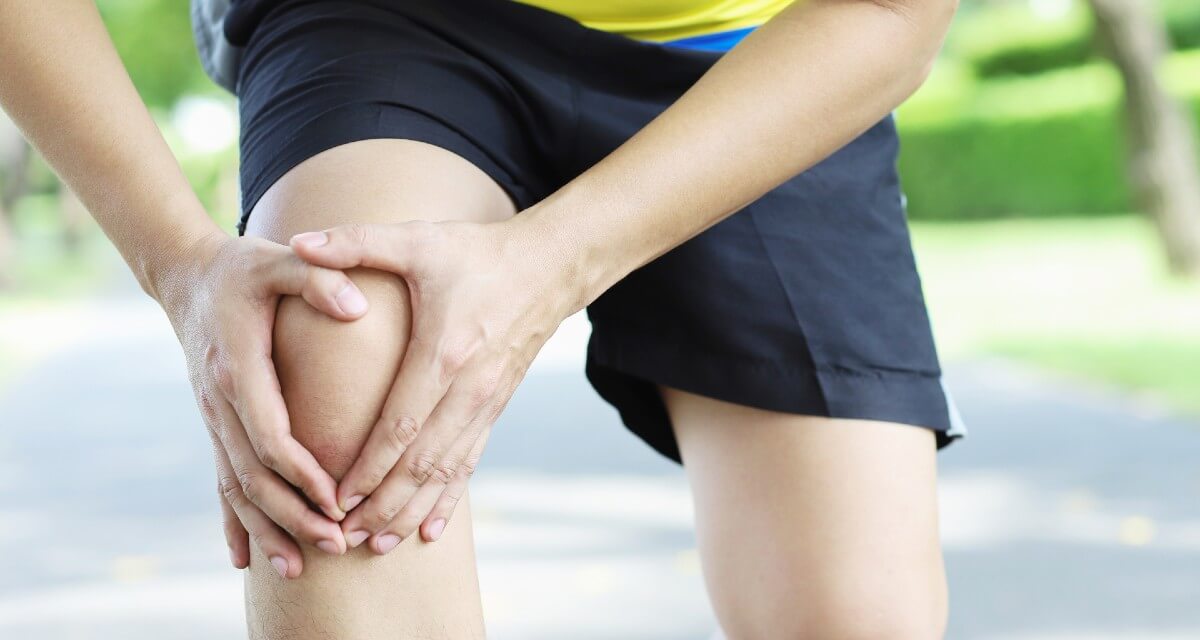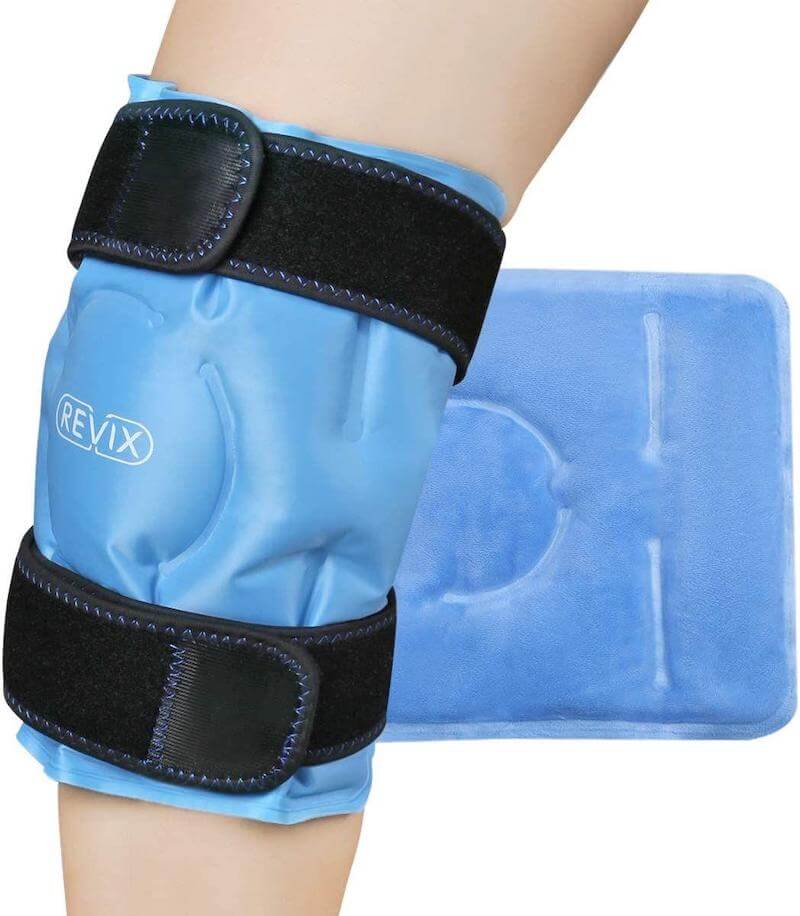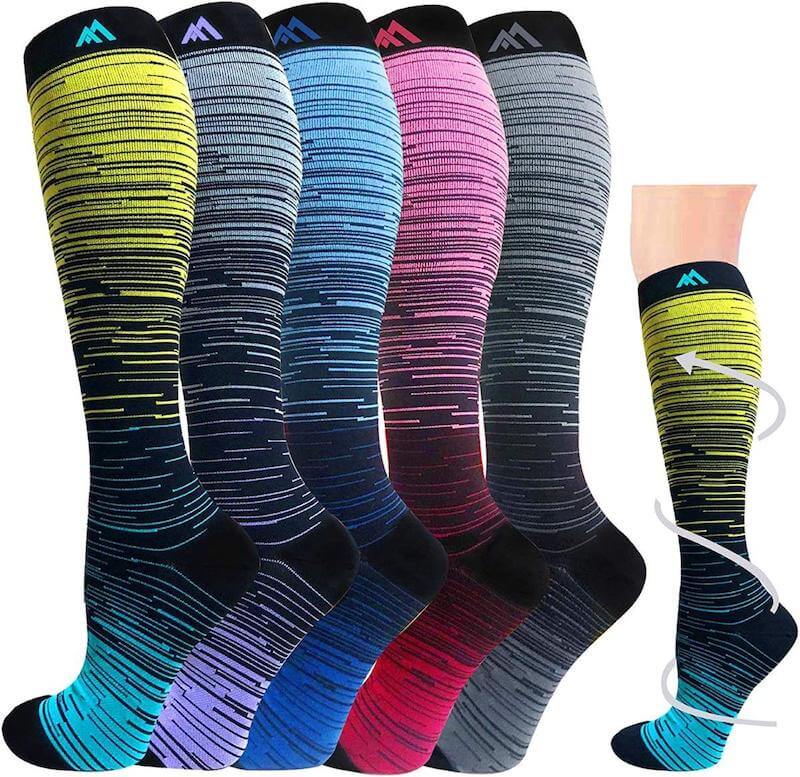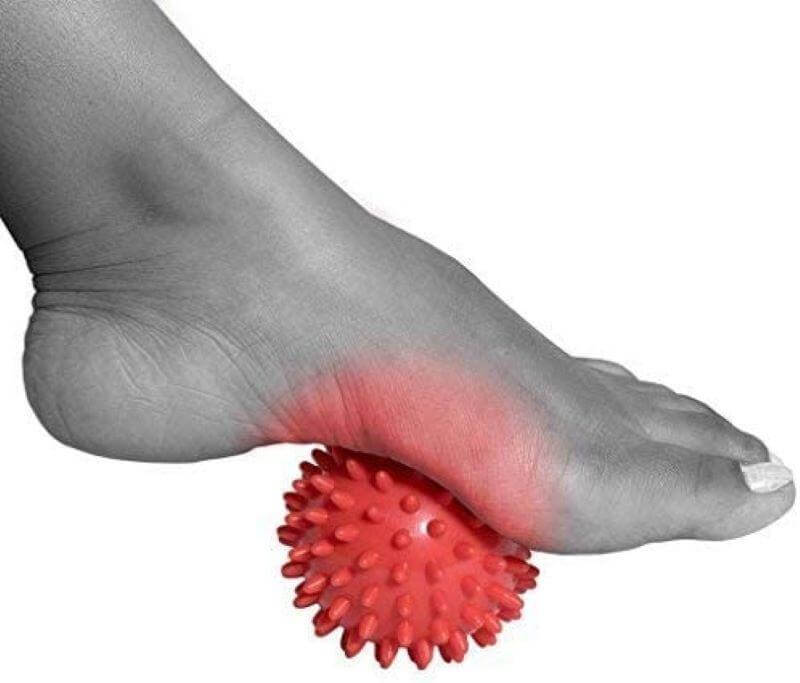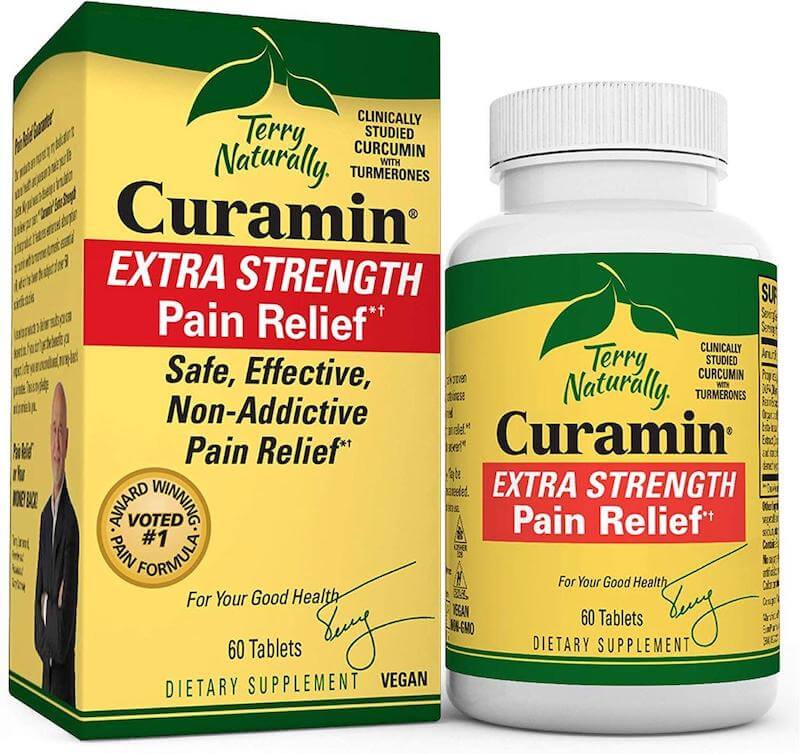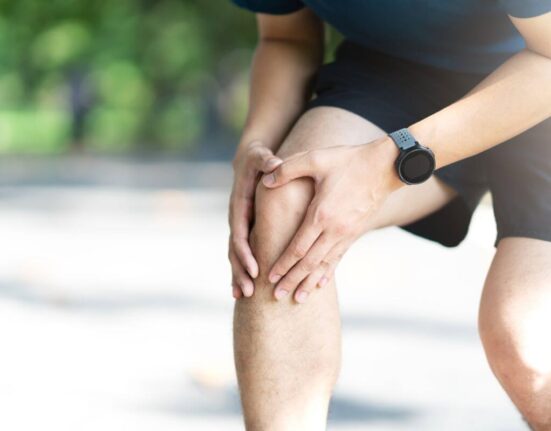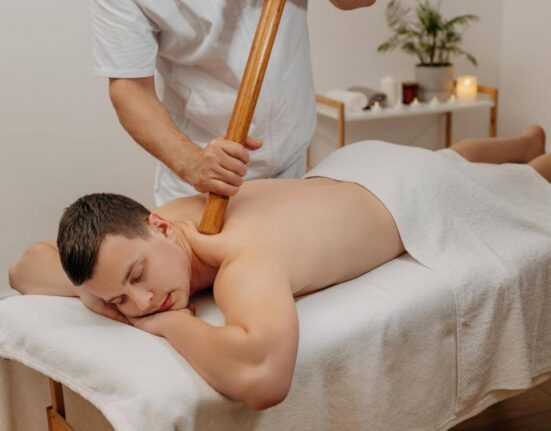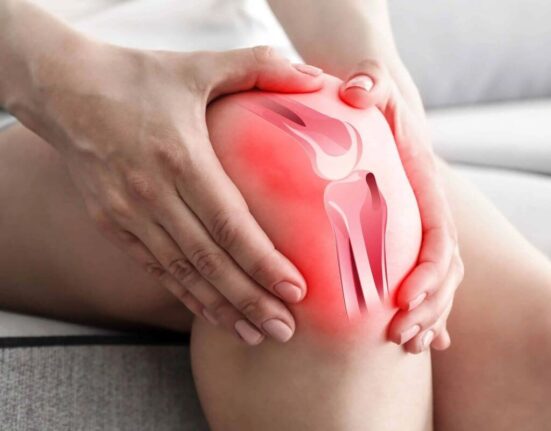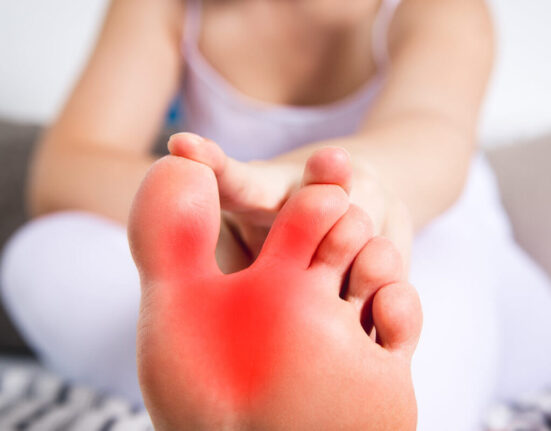If you are suffering from plantar fasciitis, you may also be experiencing knee pain. This is because the plantar fascia connects to the bones in both the feet and legs, and inflammation can cause pain to radiate upward into the knees.
Additionally, people with plantar fasciitis often change their gait to avoid putting pressure on their heels, which can lead to additional strain on the knees and more pain.
Plantar fasciitis is a condition that causes pain in the heel and bottom of the foot. It is a common condition, particularly in runners, and can be quite debilitating. But can plantar fasciitis also cause knee pain? Let’s take a closer look.
The plantar fascia

The plantar fascia is a band of tissue that runs from the heel to the toes and helps to support the arch of the foot. When this tissue becomes inflamed, it results in plantar fasciitis. The condition is often caused by overuse, such as from running or other high-impact activities. It can also be caused by wearing shoes that do not provide enough support.
Plantar fasciitis is a common type of foot pain that typically occurs on the bottom of the feet, in an area called the plantar, and often affects the heel, ball of the foot, and toes. Plantar fasciitis often results in sharp pain in the heel or bottom of the foot, which can make walking or standing difficult. The pain is usually worse first thing in the morning or after sitting for long periods of time. However, some people with plantar fasciitis also experience knee pain.
It can be caused by various factors, including footwear choice, poor biomechanics when weight-bearing or walking, overuse injuries to other parts of the body, such as Achilles tendonitis or a rotator cuff tear, genetics, and certain medical conditions.
Can plantar fasciitis cause knee pain?
Yes. There are a few reasons why plantar fasciitis can cause knee pain. One reason is that the plantar fascia attaches to the bones in the foot, which then connect to the bones in the leg.

When there is inflammation in the plantar fascia, it can cause pain to radiate up into the knee. Additionally, knee pain can occur because people with plantar fasciitis often change their gait, which is the way they walk, in an effort to avoid putting pressure on their heels. This change in gait can put additional strain on the knees and lead to pain.
A study published in the Journal of Physical Therapy Science found that people with plantar fasciitis frequently experience knee pain due to the inflammation associated with their condition.
In fact, nearly 60% of participants reported experiencing at least one episode involving intense knee pain in the past year. This suggests that plantar fasciitis may be an underlying factor contributing to joint dysfunction elsewhere in the body. If you are suffering from plantar fasciitis and noticing a decreased range of motion or occasional bouts of severe knee pain, it may be worth checking for joint involvement as well.
How to ease the knee pain caused by plantar fasciitis naturally
There are ways to ease knee pain naturally caused by plantar fasciitis, and they are listed here with high-quality products to help ease the pain.
1. Self-care techniques such as ice packs
REVIX Ice Pack for Knee Pain Relief, Reusable Gel Ice Wrap for Leg Injuries
Details about this knee ice pack that can help soothe knee pain caused by plantar fasciitis:
- Gel stays flexible even when frozen, providing more comfort
- Ice and compression therapy
- 2 elastic straps ensure the knee ice wrap is secured.
- Handy, hands free wrap
- Reversible design
- Provides soothing relief and aids in healing
- Helpful for plantar fasciitis related knee pain, knee replacement surgery, cold compress therapy for arthritis, meniscus tear and ACL
- Highly recommended on Amazon
2. Wearing supportive compression socks helps heal plantar fasciitis, which in turn will heal the knee pain caused by it.
Compression socks are a popular way to help heal plantar fasciitis. Compression socks use bands and fabric panels to help relieve tension and pain in the feet, ankles, and lower calves. When worn regularly, compression socks can improve blood flow and reduce inflammation. This can help ease plantar fasciitis symptoms by reducing the pressure on your heels and toes.
How often should I wear compression socks to help heal plantar fasciitis?
Experts recommend wearing compression socks throughout the day as part of a regular program to treat plantar fasciitis. Wearing them during exercise may also be beneficial. For best results, it is recommended to wear them throughout the day instead of just before or after activities that cause discomfort.
Graduated Medical Compression Soc Knee High Socks
Benefits and details about these compression socks for helping to soothe and heal knee pain caused by plantar fasciitis:
- Made from 85% nylon, 10% poly, 5% healing copper fiber
- Supports faster recovery and relief from all pain caused by plantar fasciitis, foot, ankle and knee
- Breathable, high performance fabric keeps an optimum temperature
- Odor free fabric due to the copper blend
- 100% satisfaction guaranteed
- Choose from many different colors
- Highly rated on Amazon
3. Strengthen ankle and calf muscles with exercises.
Some people think that strengthening ankle and calf muscles with exercises will only help them heal plantar fasciitis if they have this condition.
However, that’s not always the case. In fact, many people who don’t have plantar fasciitis can actually benefit from these exercises.
When you strengthen your ankles and calves, it helps to improve your balance and coordination. This is because these muscles help you maintain your center of gravity while you are moving around.
It also allows you to walk more balanced, making you less prone to developing plantar fasciitis on a regular basis.
Vanessa B. Health TV shows you how to effectively strengthen your calves and ankles through regular stretching so you can heal and prevent plantar fasciitis in her 11-minute video:
Massage Ball – Spiky for Deep Tissue Back Massage
Why this ball is super helpful in relieving all plantar fasciitis pain:
- Hit all the pressure points
- Spikes will not bend
- Gives a stimulating massage
- Will withstand any body weight
- Increases circulation and healing
- Go harder and longer in key areas
- All Over Body Deep Tissue Muscle Therapy – Your Compact Muscle Roller
- Take it to the gym
- Recommended by athletes and fitness trainers
- The perfect tool to support the feet, ankles and knees
- Highly rated on Amazon
4. Take natural anti-inflammatories from nature that are clinically proven to reduce pain, like turmeric.
Turmeric is a popular herb that has been used for centuries to treat a variety of health problems. It has gained popularity as a natural remedy for plantar fasciitis pain.
How does taking turmeric help heal plantar fasciitis and the knee pain associated with it?
One study showed that volunteers who took 50 mg/day of curcumin, which is a component found in turmeric, experienced improvement in their symptoms within two weeks. Curcumin works by inhibiting COX-2 enzymes, which are responsible for inflammation.
Terry Naturally Curamin Extra Strength – Non-Addictive Pain Relief Supplement
Details about this natural pain reliever with curcumin, the active ingredient in turmeric:
- Safe, non-addictive pain relief
- Effective as an anti-inflammatory. Inflammation causes pain.
- Four Powerhouse Ingredients; Curamin Extra Strength combines clinically proven curcumin and boswellia with DLPA and nattokinase to create a product that has been recognized throughout the health food industry for pain relief
- 60 Vegan Tablets
- Non-GMO, Gluten-Free – 20 Servings
- Highly rated on Amazon
Whatever strategy works best for you will help relieve your suffering. We hope you feel better soon!
More from thewellthieone.com
The links used on thewellthieone.com are affiliate links, which may provide a small commission. This does not increase the price of the goods for the consumer whatsoever. What it does is ensure that useful content like this can continue to be produced. Thank-you for enjoying our content and allowing us to continue to provide more.

